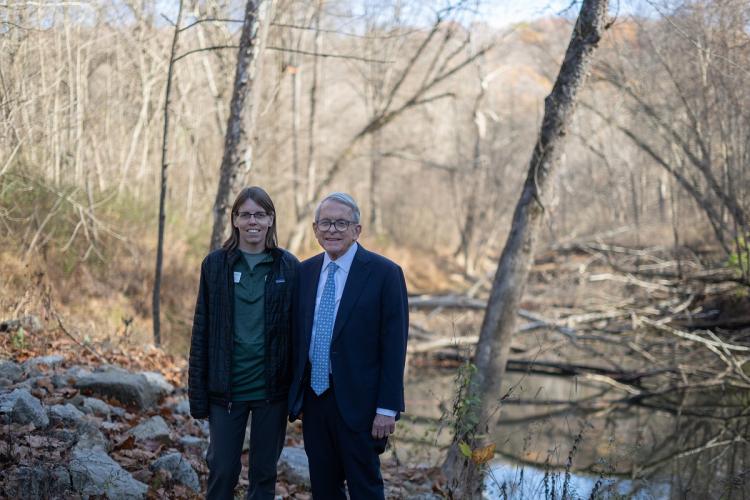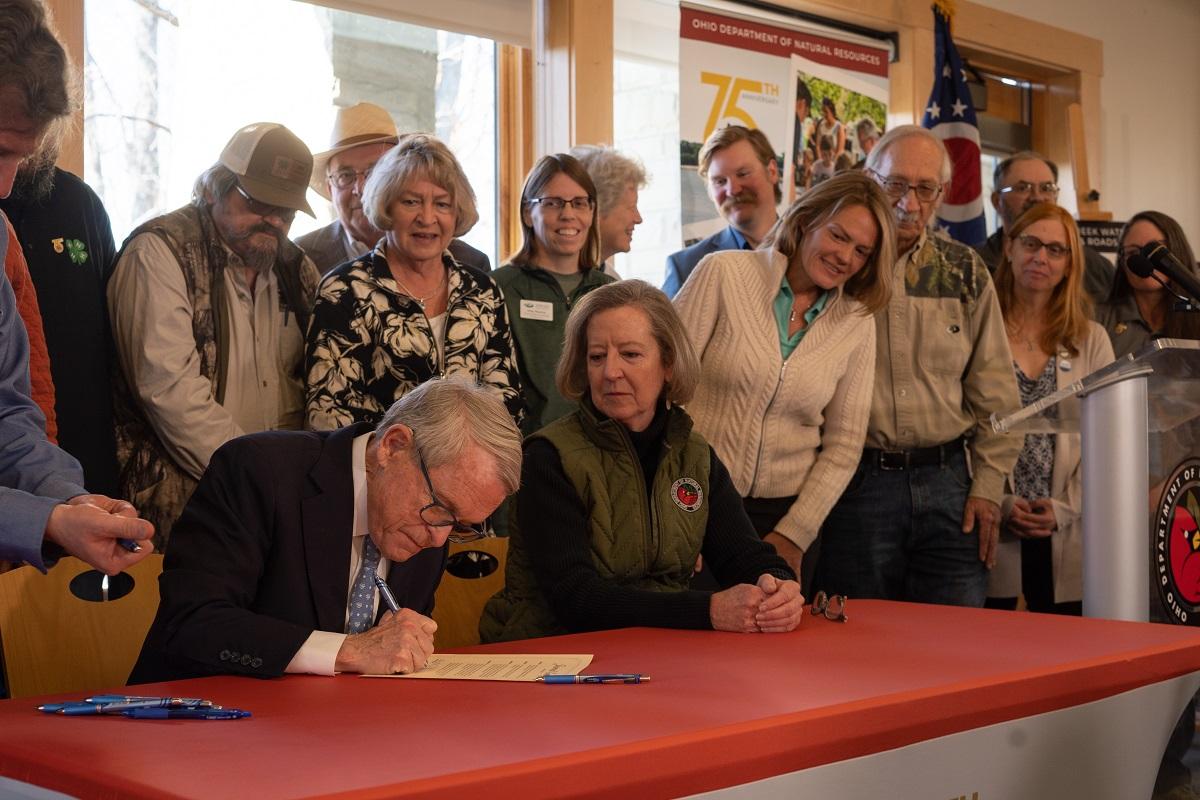
Raccoon Creek designated an Ohio Scenic River

Over the last 40 years, the Raccoon Creek Watershed in Southeast Ohio has slowly transformed into one of Ohio’s best-kept secrets.
The Ohio Department of Natural Resources (ODNR) and multiple partners, including OHIO’s Voinovich School of Leadership and Public Service, have painstakingly restored it from polluted waterway to a hub for outdoor recreation.
And now, the secret is out: At a ceremony on Nov. 12 at the Lake Hope Lodge in McArthur, Governor Mike DeWine and ODNR Director Mary Mertz designated Raccoon Creek as the 16th Ohio Scenic River and the first in Southeast Ohio.
“We are celebrating the health of this waterway while capping off a true comeback story,” said Governor DeWine. “Once considered 'nearly lifeless,' Raccoon Creek is now home to more than 90 species of fish and serves as an example of what we can achieve when water quality is prioritized at the state, local, and federal levels.”
Raccoon Creek was considered “unrecoverable” for many years due to acid mine drainage and sedimentation throughout the watershed caused by more than 70 years of coal mining. In the 1970s, area residents pushed for a coordinated effort to restore the waterway. Since then, ODNR has completed 20 acid mine drainage treatment projects, including removing mine waste piles and creating limestone channels, leach beds, and wetlands.

“There have been monumental efforts and several projects to ensure this land and waterway have been restored and protected for future generations,” said ODNR Director Mertz. “This moment recognizes the tremendous efforts over the last 40 years to restore Raccoon Creek to the high-quality waterway we see today.”
The Raccoon Creek designation is especially notable because it is the only one of the Scenic Rivers that has undergone a significant rehabilitation effort. In contrast, others, such as the Little Miami River in southwestern Ohio and Little Beaver Creek outside of Youngstown, met or exceeded water quality standards from the start.
“Designating Raccoon Creek is an acknowledgement of its natural characteristics and diverse habitats, but it also marks the first time an ecologically restored stream has been eligible for scenic river status,” said Chief Jeff Johnson, ODNR Division of Natural Areas and Preserves. “We hope this designation will serve as a model for other watersheds.”
Amy Mackey, the Raccoon Creek project lead at the Voinovich School, is grateful for all those who have contributed to these efforts.
“There is so much that has gone into restoring Raccoon Creek from a very nearly dead watershed due to the pre-law historic coal mining to now meeting and exceeding warm water quality standards,” she says. “None of this would be possible if not for the collaboration of all partners, from grassroots organizations and private landowners up to state and federal agencies.”
The designation is for the main stem of Raccoon Creek, which flows south more than 100 miles through Vinton, Meigs and Gallia counties, from the headwaters in New Plymouth to where it empties into the Ohio River just south of Gallipolis.
“When a water body is dead, and the water is orange from acid mine drainage, nobody wants to come there,” says Mackey. “But as the stream is restored and the biology returns, people can once again enjoy the watershed; fishing, paddling, hiking and just being outside.”
